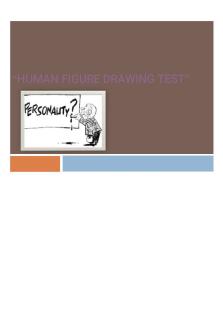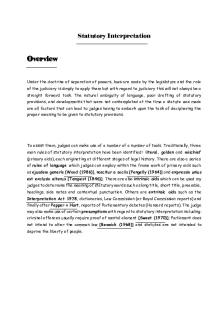Short Interpretation Exercise 1 PDF

| Title | Short Interpretation Exercise 1 |
|---|---|
| Author | Michael Yoo |
| Course | Biblical Literature |
| Institution | Emory University |
| Pages | 2 |
| File Size | 47.3 KB |
| File Type | |
| Total Downloads | 28 |
| Total Views | 160 |
Summary
Biblical interpretation exercise - mandatory assignment. ...
Description
Michael Yoo Dr. Gilders Biblical Literature September 9, 2016 Short Interpretation Exercise 1 A hasty reading of the first three chapters of Genesis would probably lead one to conclude that Genesis chapter 2 is describing in detail God’s creative activity of chapter 1. To the historical-critical scholar, however, there are, as Brettler puts it: “two accounts [which] differ significantly in their detail” (Brettler 32). The first creation account occurs from Genesis 1:1 up until Genesis 2:4a. As one who seeks to apply the historical-critical method to these texts, it is necessary to ask this question: how did the author intend these words to be taken and how would the ancient Jews have understood it? In my opinion, the ancient Jews were probably unconcerned with issues that we are often concerned about, such as whether God created everything ex nihilo or not. What the ancient Jew probably would have seen in this account is the power and wisdom of their God in bringing order to a world that was previously “a formless void” (Genesis 1:2). The second creation account occurs from Genesis 2:4b to Genesis 2:25. Although this account mentions humans, as does the first account, there are marked differences between the two. One is that the second account seemingly suggests a different creation order than the first account. For example, Genesis 2:5 could possibly imply that prior to the creation of man there was no vegetation on the earth. But that would be at conflict with the account in Genesis 1 where humans were created on the sixth day and vegetation on the third day. Likewise, Genesis 2:19 seems to indicate that animals were formed after humans, which would be at variance with the
order in Genesis 1. These seeming discrepancies lead us to ask: which is it? Were vegetation and animals created prior to man or were they not? Or perhaps these are two independent accounts of creation? Furthermore, the two accounts give two very different depictions of God. The first portrays him as sovereign and authoritative, wise and powerful. Here God is able to bring order to a previously chaotic world. In the second, however, God is portrayed as highly personable, stooping down to our level in order to communicate with us and even clothe us. From all this it is not unreasonable to gather that both of these accounts would have been important to the ancient Jew. The first would have been important to them in understanding how the world at large, as they knew it, came to be. The second, for understanding how they themselves and humankind in general were brought into being. And lastly, each of these accounts would have been cherished by the ancient Jews since each reveals a different aspect of the nature of God to them. He is majestic, powerful, and therefore worthy of worship as revealed in the first, and yet condescending and personable as revealed in the second....
Similar Free PDFs

Short Interpretation Exercise 1
- 2 Pages

Treaty Interpretation Exercise
- 4 Pages

Exercise 1
- 8 Pages

Exercise 1
- 1 Pages

Exercise 1
- 2 Pages

Exercise 1
- 3 Pages

1. 5 Step EKG Interpretation
- 1 Pages

Exercise #1
- 9 Pages

Essay 1 Exercise 1
- 2 Pages

HFD Interpretation
- 42 Pages

Statutory Interpretation
- 5 Pages

Statutory Interpretation
- 11 Pages
Popular Institutions
- Tinajero National High School - Annex
- Politeknik Caltex Riau
- Yokohama City University
- SGT University
- University of Al-Qadisiyah
- Divine Word College of Vigan
- Techniek College Rotterdam
- Universidade de Santiago
- Universiti Teknologi MARA Cawangan Johor Kampus Pasir Gudang
- Poltekkes Kemenkes Yogyakarta
- Baguio City National High School
- Colegio san marcos
- preparatoria uno
- Centro de Bachillerato Tecnológico Industrial y de Servicios No. 107
- Dalian Maritime University
- Quang Trung Secondary School
- Colegio Tecnológico en Informática
- Corporación Regional de Educación Superior
- Grupo CEDVA
- Dar Al Uloom University
- Centro de Estudios Preuniversitarios de la Universidad Nacional de Ingeniería
- 上智大学
- Aakash International School, Nuna Majara
- San Felipe Neri Catholic School
- Kang Chiao International School - New Taipei City
- Misamis Occidental National High School
- Institución Educativa Escuela Normal Juan Ladrilleros
- Kolehiyo ng Pantukan
- Batanes State College
- Instituto Continental
- Sekolah Menengah Kejuruan Kesehatan Kaltara (Tarakan)
- Colegio de La Inmaculada Concepcion - Cebu



